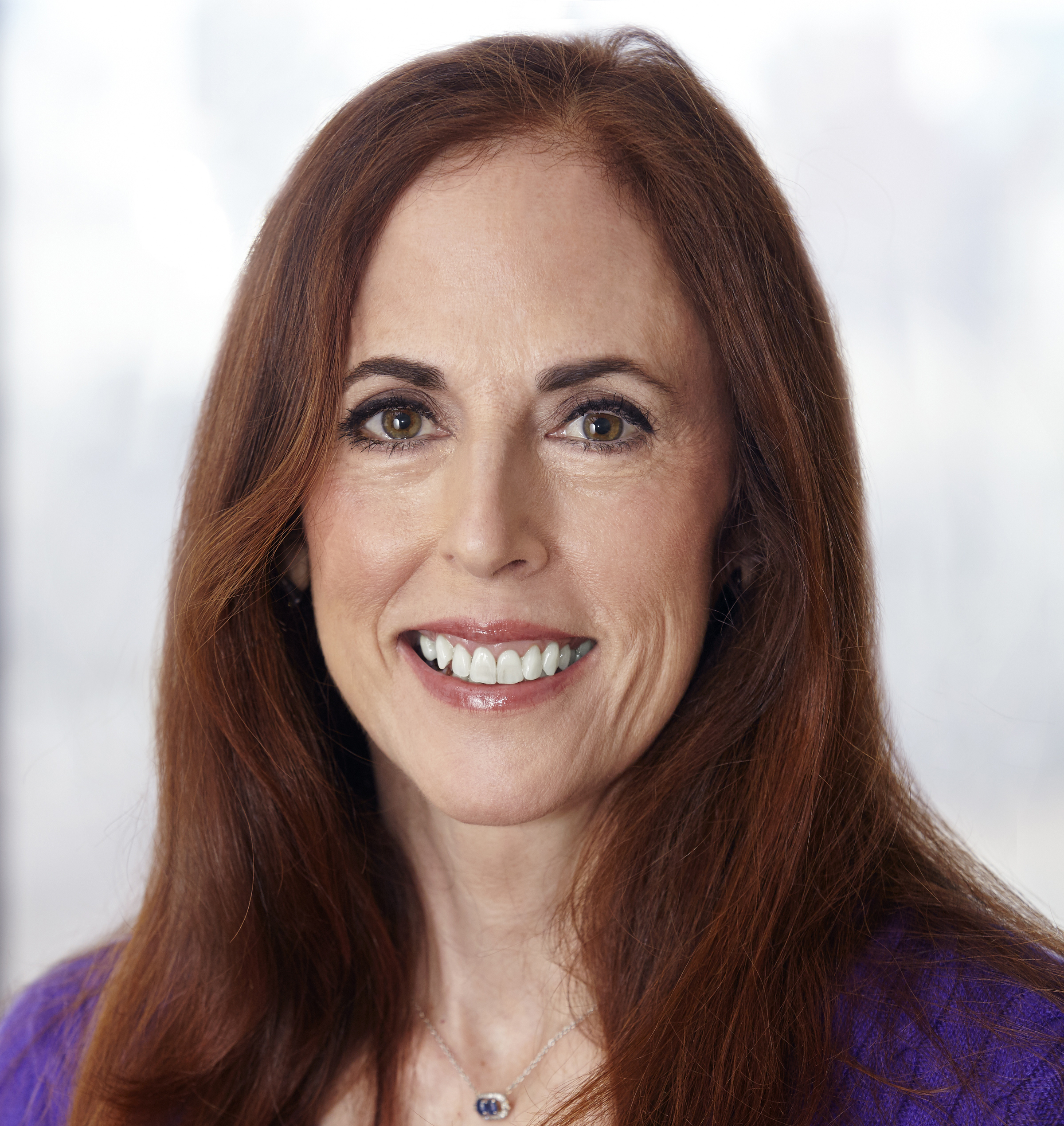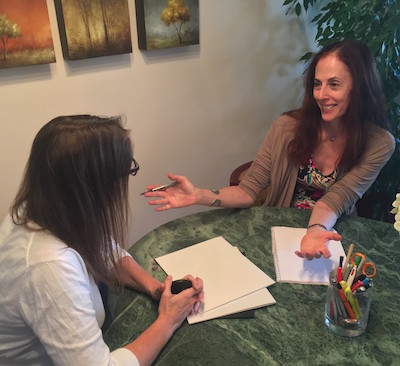 Despite having to set an alarm for 6:45 am on a Saturday morning, my husband and I attended the 2017 Autism Conference at Adelphi University for Adolescents and Adults, sponsored by the Asperger’s and High Functioning Autism Association. We had about an hour’s drive in order to arrive on time for the all-day conference from 8:15 am to 4:15 pm. (No, we are not masochists). This was our third trek to Adelphi to learn what we could do to help our adult daughter on the spectrum, and it was well worth the cost ($300) and sleep deprivation.
Despite having to set an alarm for 6:45 am on a Saturday morning, my husband and I attended the 2017 Autism Conference at Adelphi University for Adolescents and Adults, sponsored by the Asperger’s and High Functioning Autism Association. We had about an hour’s drive in order to arrive on time for the all-day conference from 8:15 am to 4:15 pm. (No, we are not masochists). This was our third trek to Adelphi to learn what we could do to help our adult daughter on the spectrum, and it was well worth the cost ($300) and sleep deprivation.
For the 2015 and 2016 conferences, my husband and I had greatly enjoyed the key note speaker John Robison. Quirky, funny and brilliant, he shared his own personal experiences of living, loving and working as a person with Asperger’s Syndrome. My husband—a persnickety judge of speakers—found Robison both inspirational and entertaining, so it wasn’t hard to convince him to attend the second Adelphi conference, once I told him his new favorite speaker would be returning.
 “Why are we going this year?” Howard asked when he learned that Robison would not be speaking at the 2017 conference.
“Why are we going this year?” Howard asked when he learned that Robison would not be speaking at the 2017 conference.
At last year’s conference, I had been selling my newly published memoir My Picture Perfect Family – What Happens When One Twin Has Autism, so that question never came up. Beyond selling my book, it almost goes without saying that my answer every year is: “I want to learn everything I can to help our 26-year-old daughter on the spectrum live as independently as possible. And it’s good to be networking with parents and professionals.”
As for 2017, I had an extra reason for attending. I wanted to hand out information and talk about our new theater group, E.P.I.C. Players, and hopefully encourage talented young adults with Asperger’s and High Functioning Autism to audition. This year’s employment panel included the founder of a software testing company, (ULTRA Testing), a bakery owner (South Fork Bakery) and the owner of an American Doll resale company (Yes She Can). Each of these businesses train and employ young adults on the spectrum and offer a variety of opportunities based on the skills and interests of individuals with autism. Unfortunately, my daughter Samantha has weak computer skills, no interest whatsoever in dolls, and nearly blew up our kitchen making hard boiled eggs. None of these panelists (nor any others I’ve seen in the past at the Adelphi Conferences or the U.N.) have offered ANY opportunities to people on the spectrum like my daughter. Samantha wants to sing and perform on stage and in film, and she would also like to share her talents with young special needs kids. Good luck finding those opportunities, right? It’s hard enough for neurotypical actors to find acting jobs; and these days a college degree is not enough to become an assistant special education teacher.
 A few theater groups already exist for adults with disabilities, but these are open to anyone who wants to join, and they offer mostly ensemble performance opportunities along with social networking. While these groups are engaged in worthwhile endeavors for overlooked people—many of whom are seriously impaired—I was looking for something different. I didn’t want to pay for classes so Samantha could be on stage for a pity party, where everyone gets the same size part and wins an award, like kids in Little League sports. I wanted a truly adult group: an opportunity for Samantha and others like her to audition, perform (and yes, compete) for roles. Samantha needed a theater group that would offer professional training, so that one day she might actually be paid for her performances.
A few theater groups already exist for adults with disabilities, but these are open to anyone who wants to join, and they offer mostly ensemble performance opportunities along with social networking. While these groups are engaged in worthwhile endeavors for overlooked people—many of whom are seriously impaired—I was looking for something different. I didn’t want to pay for classes so Samantha could be on stage for a pity party, where everyone gets the same size part and wins an award, like kids in Little League sports. I wanted a truly adult group: an opportunity for Samantha and others like her to audition, perform (and yes, compete) for roles. Samantha needed a theater group that would offer professional training, so that one day she might actually be paid for her performances.
Of course no such group existed, so (like many other autism parents) I collaborated with passionate like-minded theater professionals to help create E.P.I.C. Players (Empower, Perform, Include, Create). Our mission is to empower talented artists living with disabilities to become an inclusive and professional resource for company members, all of whom are seeking to represent themselves and their talents on stage and screen. Classes such as scene study, audition prep, resume writing and improv, along with a variety of performance opportunities, are offered free of charge to cast members who successfully audition for the group. Next year, I’m hoping E.P.I.C. Players will be represented at the Adelphi conference.
This year, it was refreshing to listen to Dena Gassner, a PhD candidate and a woman with autism, who was the 2017 keynote speaker. If many women are feeling  marginalized by the recent election, I can only imagine how depressing it must be for women on the spectrum. During her presentation, “Through the Lens of ASD: Do You Know Your Autism?” Ms. Gassner offered upbeat advice and insightful analysis for individuals on the spectrum. She urged people with autism to see themselves in a more positive light and get off the “shame train.” The shame train begins from the moment a pregnant woman is asked “What do you want?” Answer: A healthy baby. But parents of kids on the spectrum are confronted with scientific and medical model language that pathologizes their children, including: “deficits, abnormality, disorder, disease, disability….” (You get the idea). Current psychological assessments focus on deficits and weaknesses—NOT strengths, and there is little consideration for the escalating test anxieties of people with ASD. By way of example, Gassner mentioned her own son, now in college, who has received deceptively low IQ scores. For me, this was a walk down memory lane that suddenly wasn’t so lonely any more.
marginalized by the recent election, I can only imagine how depressing it must be for women on the spectrum. During her presentation, “Through the Lens of ASD: Do You Know Your Autism?” Ms. Gassner offered upbeat advice and insightful analysis for individuals on the spectrum. She urged people with autism to see themselves in a more positive light and get off the “shame train.” The shame train begins from the moment a pregnant woman is asked “What do you want?” Answer: A healthy baby. But parents of kids on the spectrum are confronted with scientific and medical model language that pathologizes their children, including: “deficits, abnormality, disorder, disease, disability….” (You get the idea). Current psychological assessments focus on deficits and weaknesses—NOT strengths, and there is little consideration for the escalating test anxieties of people with ASD. By way of example, Gassner mentioned her own son, now in college, who has received deceptively low IQ scores. For me, this was a walk down memory lane that suddenly wasn’t so lonely any more.
As for seeking resilience and positive self-acceptance, Gassner had a great deal of excellent advice: understanding individual “expression” of ASD, identifying needs and triggers, disclosure and seeking all appropriate accommodations and adaptations. She described ways of keeping “the cognitive rain barrel” full for people with autism, while emphasizing that not everyone with autism can work well full-time because of the amount of cognitive energy and effort expended by people on the spectrum. Further she stressed the importance of overcoming feelings of helplessness with a sense of mastery. Ms. Gassner urged young adults to insist on accommodations at work (instead of relinquishing them after college graduation). People don’t “graduate” from autism and should not be expected to give up their “invisible wheelchairs.” Children in wheelchairs are not expected to get up and walk when they become adults. Such a demand would be considered cruel and unreasonable, so why are we asking young adults on the spectrum to act and think like neurotypical young adults? An excellent question, I thought, though I’m not sure most employers would appreciate the analogy.
 As uplifting and informative as I found Deena Gassner’s remarks, my hands-down favorite conference speaker was Jed Baker, PhD and director of the Social Skills Training Project serving individuals with autism (my husband’s choice for this year’s rock star). Not only was Baker a brilliant speaker with a wonderful sense of humor, but he also had loads of practical advice for helping people like my daughter deal with anxiety and frustration, as well as how to avoid various triggers. He reminded me a lot of Dr. Stanley Greespan, who treated our daughter for many years until he passed away. In some ways, Jed Baker was even more helpful to me than Dr. Greenspan because he provided actual words that I think might work with our daughter in a variety of situations, if I repeat them often enough. The only problem was tha
As uplifting and informative as I found Deena Gassner’s remarks, my hands-down favorite conference speaker was Jed Baker, PhD and director of the Social Skills Training Project serving individuals with autism (my husband’s choice for this year’s rock star). Not only was Baker a brilliant speaker with a wonderful sense of humor, but he also had loads of practical advice for helping people like my daughter deal with anxiety and frustration, as well as how to avoid various triggers. He reminded me a lot of Dr. Stanley Greespan, who treated our daughter for many years until he passed away. In some ways, Jed Baker was even more helpful to me than Dr. Greenspan because he provided actual words that I think might work with our daughter in a variety of situations, if I repeat them often enough. The only problem was tha t there was so much great advice I couldn’t absorb it all or take notes fast enough. Still, I managed to jot down a few key Bakerisms to go into a “relaxation folder for unexpected triggers.” There was the brilliant, multi-situational question: “Do you want people to like you, or do you just want attention?” Also, there was soothing advice: “All problems can be solved if you WAIT and talk to the right person.” But in my opinion, Baker’s best words for facing challenges were: “Are you ready to grow?” For Samantha (and many others) the answer is a resounding “YES.”
t there was so much great advice I couldn’t absorb it all or take notes fast enough. Still, I managed to jot down a few key Bakerisms to go into a “relaxation folder for unexpected triggers.” There was the brilliant, multi-situational question: “Do you want people to like you, or do you just want attention?” Also, there was soothing advice: “All problems can be solved if you WAIT and talk to the right person.” But in my opinion, Baker’s best words for facing challenges were: “Are you ready to grow?” For Samantha (and many others) the answer is a resounding “YES.”
I’ll definitely be at next year’s Adelphi Conference. I’m hoping to bring E.P.I.C.’s creative director and new opportunities for talented performing artists with autism. Maybe my daughter Samantha will attend, along with Rachel Israel, director of the film Keep the Change—a love story and the first of its type to feature actors on the spectrum playing characters on the spectrum. Rachel can show clips and talk about the film’s triumphant premiere at the 2017 Tribeca Film Festival. Every autism conference should offer a slice of joy whenever possible.






 Marguerite Elisofon is a New York City writer and the author of My Picture Perfect Family, a memoir about how her family navigated life with a child on the autistic spectrum before the internet and support groups existed. She also blogs about parenting young adults and disability related issues in The Never Empty Nest. Her writing has been featured in a variety of publications, including Time and NY Metro Parents magazine, and her family’s story has been featured by the NY Post, Fox News, The Daily Mail, and on Jenny McCarthy’s Dirty Sexy Funny radio show. A Vassar graduate, Marguerite was born and raised in New York City, where she still lives with her husband, Howard, in their mostly-empty nest. She is available to speak about a wide variety of issues relating to twins, parenting, and autism.
Marguerite Elisofon is a New York City writer and the author of My Picture Perfect Family, a memoir about how her family navigated life with a child on the autistic spectrum before the internet and support groups existed. She also blogs about parenting young adults and disability related issues in The Never Empty Nest. Her writing has been featured in a variety of publications, including Time and NY Metro Parents magazine, and her family’s story has been featured by the NY Post, Fox News, The Daily Mail, and on Jenny McCarthy’s Dirty Sexy Funny radio show. A Vassar graduate, Marguerite was born and raised in New York City, where she still lives with her husband, Howard, in their mostly-empty nest. She is available to speak about a wide variety of issues relating to twins, parenting, and autism. 
Thanks for such an update reflection on the aha conference. The team at aha works hard to pull this together 2 times a year.
Thought it would be interesting for people who didn’t go to hear what they were missing:)